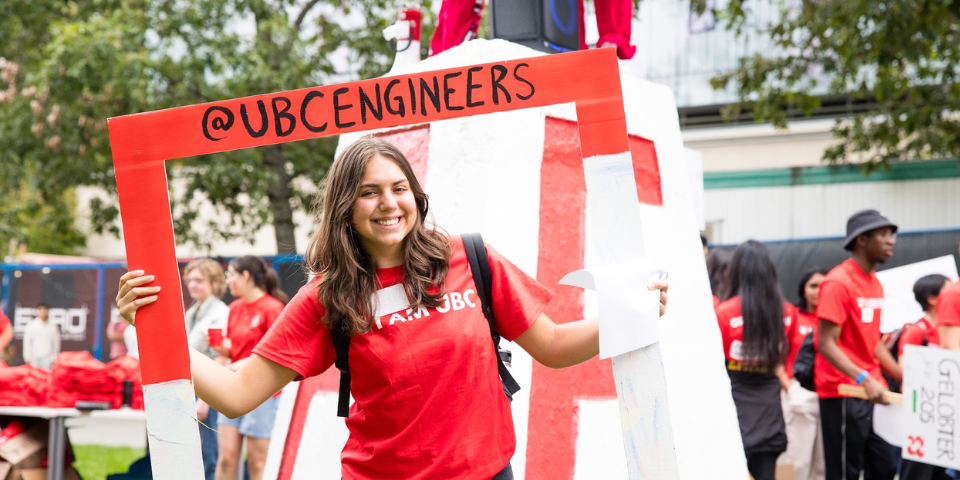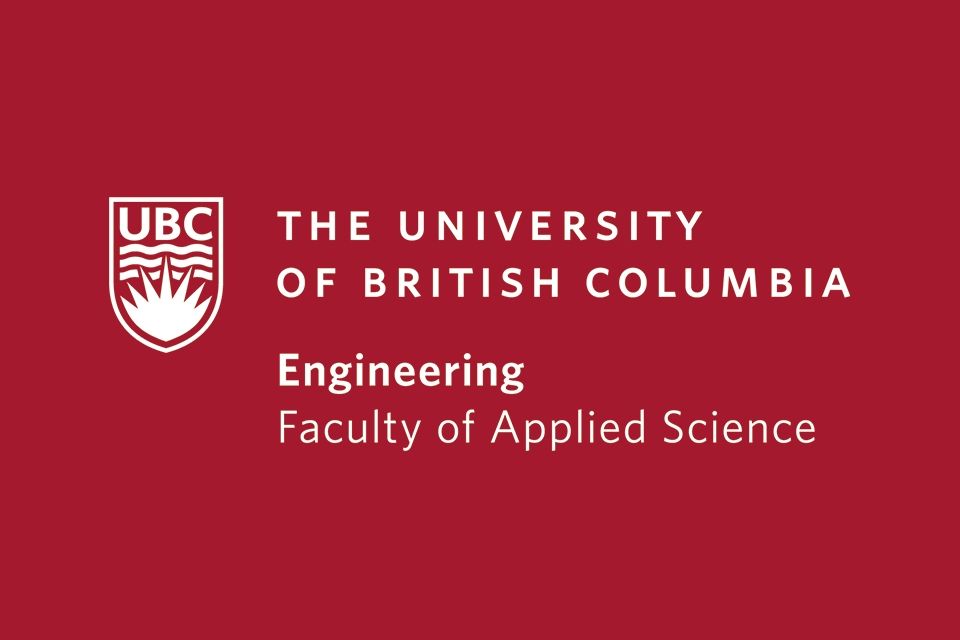
Do you want to be an inventor? A research engineer? A technology entrepreneur? Engineering Physics (EngPhys) encourages creativity, challenges intellects and celebrates big-picture thinking in a collegial, smaller class setting while offering science depth and engineering breadth to develop technology leaders and pioneers.
EngPhys students build a solid foundation in applied physics and a blend of electrical and mechanical engineering, while gaining extensive engineering design experience.
EngPhys offers unmatched breadth and freedom for intellectual development — six electives allow you to shape the program toward your field of interest while encouraging the rigorous pursuit of innovation.
Through team-based design courses and state-of-the-art fabrication equipment, you will learn to build complex electromechanical systems, bringing your innovative science ideas to life as real products, patents and entrepreneurial opportunities.
Vancouver Campus
Learn more at You UBC's program page or visit us at engphys.ubc.ca
Why study this program
Engineering Physics provides unique training through depth in the physics and math that underlie technical innovation, while equally emphasizing project work across several engineering disciplines. Students are able to tailor the degree to their interests through their selection of technical electives, or use these electives to explore and discover their interests. Examples of specializations students can pursue include but are not limited to: electrical engineering, mechanical engineering, bioengineering, biophysics, applied mathematics, materials engineering, astronomy, and technology entrepreneurship.
Courses & Specializations
Students will first complete a foundational first year of engineering and then take specialized courses beginning in second year, once they are placed into their engineering discipline. Here is a sample of the courses Engineering Physics students take in each year of study:
| Year 2 | |
|---|---|
| ELEC 204 | Linear Circuits |
| ENPH 259 | Experimental techniques |
| CPEN 221 | Principles of Software Construction |
| ENPH 253 | Introduction to Instrument Design |
| Year 3 | |
|---|---|
| ELEC 221 | Signals and Systems |
| MECH 325 | Machine Design |
| PHYS 304 | Quantum Mechanics |
| ENPH 353 | Engineering Physics Project I |
| Year 4 | |
|---|---|
| ENPH 459 | Engineering Physics Project II |
| MATH 318 | Probability and Physical Applications |
| PHYS 401 | Electromagnetic Theory |
| ELEC 341 | Control Theory |
| Year 5 | |
|---|---|
| PHYS 403 | Statistical Mechanics |
| PHYS 408 | Optics |
| ENPH 479 | Engineering Physics Project III |
| ENPH 352 | Laboratory Techniques in Physics |
For a more in-depth look at the curriculum, please consult the Academic Calendar and course descriptions.
Enhance Your Education (further education)
In every year, students have the opportunity to apply their knowledge through real-world learning in autonomous robotics competitions, advanced physics experiments, and research and engineering projects. Students interested in starting their own companies after graduation may select from specific entrepreneurship projects in the last two years of the program and dedicate their elective credits to pursue viable business opportunities with the help of industry and business mentors.
Careers
With a mean base salary of $87,785 (source), graduates of Engineering Physics are well equipped to pursue careers in a wide variety of industries. Common industries graduates can successfully enter include: advanced materials, electrical engineering, biophysics and bioengineering, mechanical engineering, entrepreneurship, business and commerce, automation and mechatronics engineering, computer science and information technology, communications, astronomy and astrophysics.
Employers
Both current students and graduates are able to work for a wide range of employers. Some of the biggest employers of UBC Engineering Physics students over the past several years include: Tesla, BC Cancer Research Centre, TRIUMF, D-Wave, Robert Bosch, Microsoft, General Fusion, and INTEL.
Alumni
- Carl Hansen, Founder and CEO, AbCellera
- James Taylor, Founder and CEO, Precision Nanosystems
- Leigh Christie, Founder and CEO, MistyWest
- Scott Philips, Founder and CEO, Starfish Medical
- Bjarni Tryggvason, Astronaut, Canadian Space Agency
- Candice Ip
- Yuqing Du
- Michael Ko
- Jonathan Tippet
Design Team & Clubs
There are over 30 Engineering Design Teams at UBC. Joining an engineering design team is an excellent opportunity for students from all disciplines to collaborate on a wide variety of design projects and gain relevant teamwork, leadership, and technical skills transferrable to future careers. Design teams related to Engineering Physics include:
UBC’s Engineering Design Teams
Minors and Dual Degrees
Engineering students are able to complement their studies with 5 Minors or a Dual Degree with Arts. Students interested in a minor can apply to their chosen option in their third year of study. A minor or dual degree will likely extend your degree past 5 years.
Co-op
Participation in the Science Co-op Education program gives students the opportunity to gain up to 16 months of paid relevant work experience during their degree. This experience provides an excellent opportunity for students to explore different industries, apply their studies to the working world, and create connections with future employers. Participation is optional, though highly recommended and students in Engineering Physics apply to join Co-op at the end of their first year of study.
International Experiences
Students can embark on an unforgettable experience abroad while earning credits towards their engineering studies. Opportunities include the Coordinated International Experience (CIE) exchange program, the Go Global exchange program, and the Global Engineering Leadership courses. The CIE program is customized for Applied Science students and features 18 international partner institutions across 3 regions. All of the international experiences allow students to build an international network of peers, professors, and potential employers.












